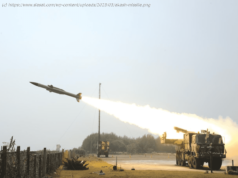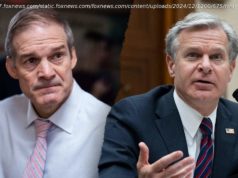As President Trump threatens Ottawa amid renegotiations of NAFTA, it has rekindled a form of nationalism north of the border, which in multicultural and multilingual Canada more often takes the shape of anti-Americanism.
President Trump has been widely unpopular in Canada since before his election, but his threats of the “ruination” of Canada in renegotiation of the North American Free Trade Agreement (NAFTA) have left Canadians not only surprised but angered. Some dismiss Mr. Trump’s moves as boorishness that market forces will eventually curtail. But he’s raised anxious questions about how dependent Canada, which sends 75 percent of its exports south, remains on the US. And that has translated into a surge of grass-roots patriotism at the grocery store and travel agency, with a #BuyCanadian movement taking off on social media. It’s also rekindled a form of nationalism, which in many Western countries translates into the exclusion of others but in multicultural and multilingual Canada more often takes the shape of anti-Americanism. “It’s always there, the sense that we are different than the Americans,” says historian Jack Granatstein. “We are loyalists; they are rebels. We believe in peace, order, and good government, not life, liberty, and the pursuit of happiness. There’s always a sense that somehow the United States is out of step with us. And at no point is that clearer than the present.”
Thomas Jefferson, in drumming up support for war against the British Empire in 1812, boasted that capturing the territory that is now Canada would be a “mere matter of marching.”
That sense of American superiority was voiced 206 years ago. But it feels uncomfortably familiar to modern-day Canadians like Eugene Oatley, a descendant of a United Empire Loyalist – American colonists who fled north at the Revolutionary War and sought refuge under the British Crown.
As President Trump threatens the “ruination” of Canada in renegotiation of the North American Free Trade Agreement (NAFTA), Canadians are not only surprised, but angered. Old complexes about the Canadian-American relationship, one that has been among the most peaceful in the world for two bordering countries, are resurfacing.
“Trump is using the same old bullying tactics, it is like 200 years all over again,” says Mr. Oatley, who on a blustery day is standing at Lundy’s Lane in Niagara Falls, site of one of the fiercest battles of the War of 1812. No side could declare outright victory, not unlike the competing visions of victory in the war itself. But for British North America, the battle thwarted a US advance and takeover – and showed how misguided the American Founding Father’s war rhetoric was.
“You have to face bullies,” Oatley says, adding that it is as true now as then. “You can’t run away from them.”
Some have dismissed Mr. Trump’s moves as boorishness that market forces will eventually curtail. But his tactics have raised anxious questions about how dependent Canada, which sends 75 percent of its exports south, remains on the US. They’ve also rekindled a form of nationalism, which in many Western countries translates into the exclusion of others, but in multicultural and multilingual Canada more often takes the shape of anti-Americanism.
“It’s always there, the sense that we are different than the Americans,” says historian Jack Granatstein, who wrote the book “Yankee Go Home? Canadians and Anti-Americanism,” which traces an undercurrent of anti-Americanism in Canadian society since the American Revolution. “We are loyalists, they are rebels. We believe in peace, order, and good government, not life, liberty, and the pursuit of happiness. There’s always a sense that somehow the United States is out of step with us. And at no point is that clearer than the present.”
“Trump has made every Canadian government that follows aware that you can’t trust the Americans now.”
Canada was built upon a vision that was explicitly distinct from the US, starting as early as 1776. The Loyalists were the first significant wave of English-speaking settlers in Canada and fundamental to its identity. Today the United Empire Loyalists’ Association of Canada is still a popular club – Oatley sits on the board of the largest of the branches in Niagara, loyalist heartland at the US border. Their patriotism is seen in the initials “UE” they place after their names to affirm their heritage.
This region, along the Great Lakes, later became the main theater of the War of 1812, with battlegrounds dotting the landscape along the Niagara River. The conflict confirmed a wariness of the US and the need to defend itself – the war’s resistance heroes are some of the most celebrated historic figures – which would continue through the founding of Canada.
When the Province of Canada with New Brunswick and Nova Scotia joined together to create Canada in 1867, the driving motivation was to resist an American invasion – and American-style extremes.
“We were terrified of a United States that had just gone through a civil war,” says Michael Adams, president of the Environics Institute for Survey Research, which measures Canadian attitudes. “There were a lot of things that Canadians didn’t like about the United States – slavery, civil wars, guns, and violence,” he says. “So we actually formed ourselves in opposition to the United States.”
In the last century, as the US grew as the world’s superpower, staking positions that were controversial around the globe, Canada worked hard to find its own place, consuming American culture and products but often at pains to define itself as, above all, “not American.” Canadian governments often disagreed with American foreign policy positions, from the Vietnam War to the invasion of Iraq in 2003. But trade barriers continued to fall, bringing down with them political ones as well.
Dan Ciuriak, an international trade expert at the C. D. Howe Institute, a think tank in Toronto, says that despite continual disputes, both economic and political, convergence has been the dominant theme of the past generation, even after 9/11 when fears of terrorism caused the US to fortify its borders. “In Canada and the US there’s this narrative of ‘we don’t just trade together, we build things together, we do things together,’ and while there was a thickening of the border post-9/11, which was never really resolved, there was still that sense that the relationship was this one of partnership,” he says.
For many, Trump’s actions have proven that illusory.
Trump has been widely unpopular in Canada since before the election, but tariffs issued on the grounds of “national security” were deeply offensive to most Canadians. Weeks later he dissed Prime Minister Justin Trudeau after the Group of Seven meeting in Quebec as “weak,” an insult that buoyed support for the Canadian leader across the political spectrum.
In the latest spat, the US seemed to shut Canada out of NAFTA negotiations, forging a deal on the sidelines with Mexico and then giving Canada a deadline to sign or leave it. As talks have stalled, Trump has hurled successive insults, threatening to put tariffs on cars, which TD Bank analysts have shown could cost Canada 160,000 jobs, the majority in Ontario.
Trump has tried to back Canada in a corner, to force Ottawa to open the Canadian dairy or cultural market or loosen the independent trade dispute system. In the midst of negotiations he told reporters in off-the-record comments that the US will not compromise with Canada. “It’s going to be so insulting they’re not going to be able to make a deal,” he said, according to the Toronto Star, which published the bombshell remarks.
Trudeau has been criticized by some for misplaying the US, by others for playing it up. “Trump stirs the nationalism, and Trudeau is riding it,” Granatstein, the historian, says.
Oatley says Trudeau has no choice but to stand strong. He says the US can’t “ruin” Canada. “Trump could hurt us,” he says, “but that would hurt the US too.”
Trudeau said this week that auto tariffs “would be devastating, obviously, to the Canadian auto industry, but it would also be devastating to the American auto industry.
Home
United States
USA — Political Amid trade fight, Canada returns to its roots in opposition to US






